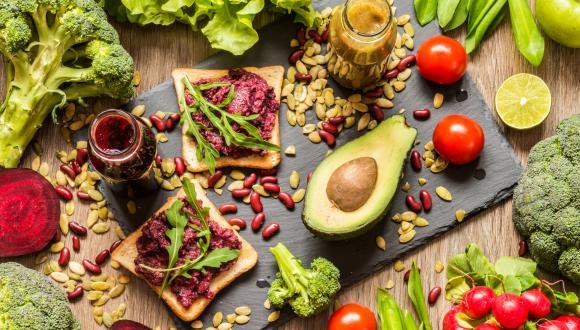Imperfect Veganism
Written for World Vegan Day by Priyanka Patra, MSc graduate student of the Mann Center program for Food security at the Tel Aviv University Faculty of Life Sciences
On this day when one celebrates World Vegan Day around the globe, we must take this occasion to not just appreciate everyone who is a perfect vegan- eating and consuming plant-based, but also take this opportunity to show our appreciation to everyone that is trying. A few perfect vegans in the world are good, but several imperfect vegetarians (or freegans or pescatarians) are better.
The path to veganism can be for varied reasons that may be cultural, ethical, or consciousness-driven concern for climate change. In the case of adopting this lifestyle from one’s own, the journey begins with a decision to contribute to a cause that one believes in. For most people who started this journey from an ethical viewpoint, the horrors of factory farming played the most important role in turning people away from meat and dairy. For others, these concerns are more environmental. And we must acknowledge that a plant-based diet is healthier.
With the current state of rising consumption and exploitative environmental practices draining the natural resources, one takes a step back and anxiously wonders what the future of our planet looks like, and this stimulates change in the one thing that they can control over several others that one cannot- food habits. The modern agricultural systems make up about a quarter of all greenhouse emissions. Animal sources from among them further contribute to the highest environmental impact in comparison to the nutrition that they provide. Livestock farming produces more than three quarters of carbon dioxide emissions from the agricultural sector. Research suggests that the type of diet we consume has a significant effect on the environment. If we took a moment and imagine the potential reduction in an environmental footprint that one could achieve by just modifying a few their eating habits. This further encourages people to cut consumption, if not eliminate this category from their diet altogether; thereby contributing some more to the growing population of ‘imperfect veganism’.
The reason I emphasize the imperfection is that as human beings we are all guilty of reproducing the “perfectionist” narrative both in case of being vegan or being a perfect climate activist who produces absolutely zero waste and only uses sustainable materials; because it’s easier to get at someone who is engaged in the practice contributing however much than at someone uninformed and/or apathetic. We must also respect that veganism while being an ideal choice, is simply inaccessible to many. People living in remote, harsh terrain often do not have healthy alternatives but meat. In other cases, plant-based alternatives are simply unavailable or expensive to the average consumer, thereby limiting their choices.
It is also good to always keep in mind that food is very personal and is a primal need. People actively trying to make changes to their conventional diet already struggle more than we can empathize. Therefore, while perfectly vegan may still be the ultimate goal, every single change contributes. The key to a meaningful behavioural shift to make an actual impact on the real world, however, requires change at a large scale.
Quality is good, but quantity is always better.





